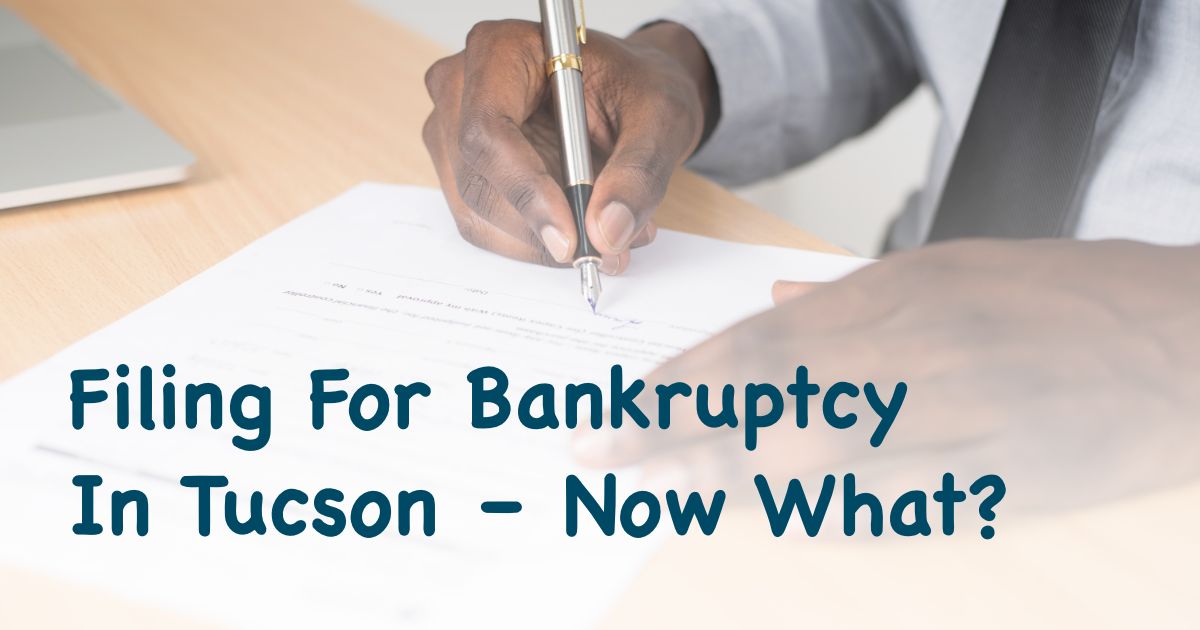
When you make the important decision to file for bankruptcy, you must start your case by filing a petition with the proper bankruptcy court. The petition and supporting documentation are extensive, and once they are filed, what can you expect next? While each case is different, the following is a general idea of the path of a consumer bankruptcy case in Tucson and throughout Arizona.
The Automatic Stay
Upon a bankruptcy filing, a court order goes into effect that can provide immediate relief for filers. This is referred to as the automatic stay, and it halts any collection attempts from creditors. This is important since most people filing for bankruptcy have been dealing with collection actions for a long time. Some efforts that the automatic stay prohibits during your case include:
- Calls and letters
- Lawsuits
- Wage garnishment
- Repossession
- Eviction
- Foreclosure
This can create peace of mind knowing that you are not obligated to make payments during the process and that your creditors cannot seek payment without an exception granted by the court.
Meeting of Creditors
Each case will require filers to attend a meeting of creditors, which is also called the 341 meeting. At this meeting, the bankruptcy trustee will ask questions to verify the information you provided in your court filings, looking for any inconsistencies, inaccuracies, or omissions. Your creditors are invited to this meeting to also ask questions, though it is rare that creditors attend. This is generally the only in-person appearance required of you during a bankruptcy case, and it is important for your attorney to be there representing you, as well.
Discharge of Debts
It’s important to note that different steps occur between the meeting of creditors and the discharge of debts. For example, in a Chapter 7 case, the trustee will determine whether there is any non-exempt property to liquidate. In a Chapter 13 case, the repayment plan will start and continue for three to five years.
However, the goal of both types of bankruptcy cases is the discharge of qualified debts. Debts that can be discharged include the following and more:
- Medical debt
- Credit cards
- Personal loans
- Most legal judgments
- Certain tax debts
- Other types of unsecured debt
- Past-due utilities and rent
This discharge can wipe out significant debt for most people, and this leaves them with the funds they need to stay on track with their remaining payments and expenses.
Let an Experienced Tucson Bankruptcy Lawyer Guide You through the Process
Yusufov Law Firm handles Chapter 7, Chapter 13, and Chapter 11 bankruptcy cases in Arizona, with offices conveniently located in both Tucson and the Mesa & Phoenix area. Our bankruptcy lawyer knows that the process can be confusing, and we are here to guide you through every step of your case – from filing the petition to the final discharge. If you would like to learn more about how bankruptcy might help you, contact us online via this website or by calling (480) 788-0098 for the Mesa and Phoenix office, or (520) 745-4429 in Tucson, to set up your free consultation.

